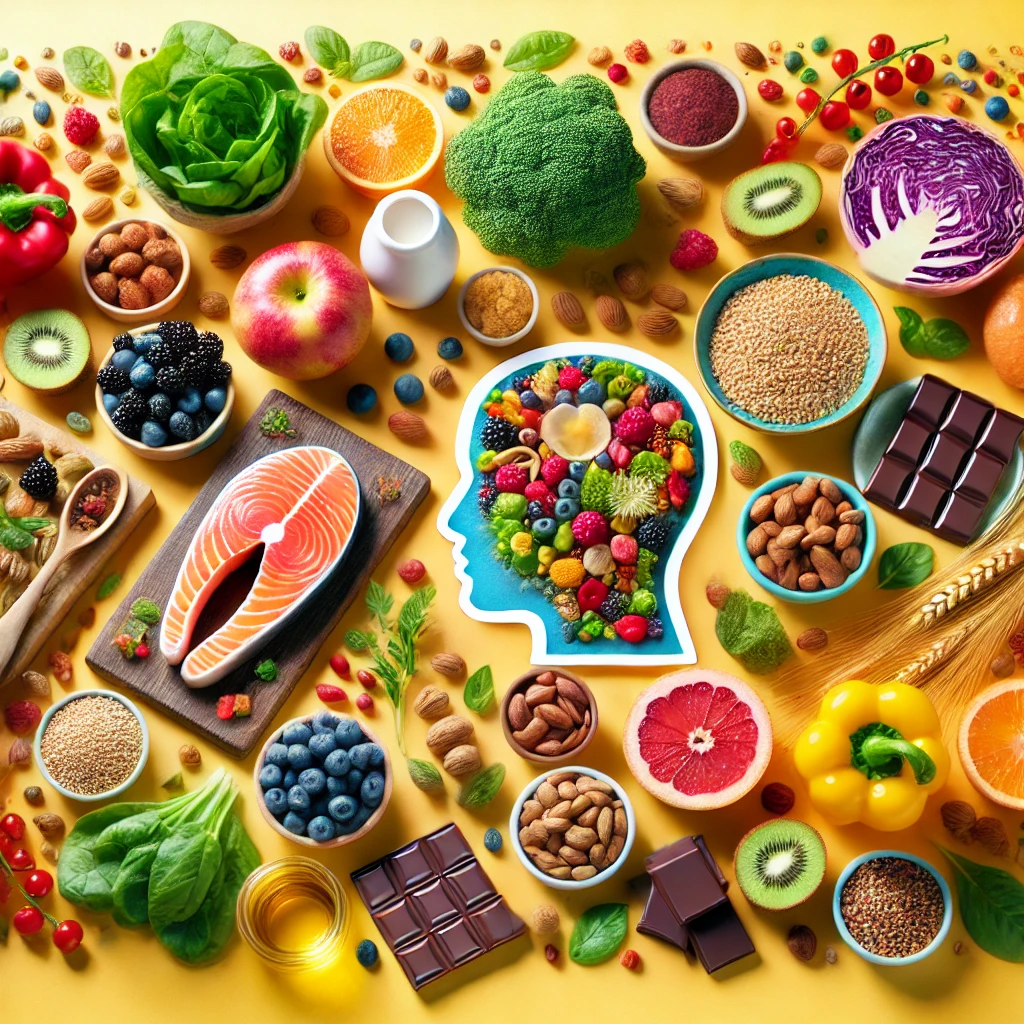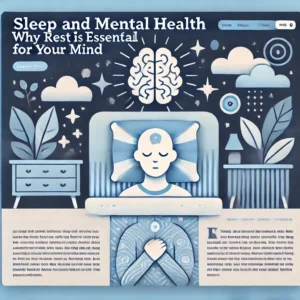Did you know that nearly 1 in 5 adults in the United States experiences mental illness each year? Surprisingly, the foods we eat can play a significant role in influencing our mental health and emotional well-being. While therapy and medication are common treatments, nutrition is emerging as a powerful, yet often overlooked, tool to improve mood and mental health.
The Gut-Brain Connection: Why Food Matters
The relationship between diet and mental health revolves around the gut-brain axis—a two-way communication network between the gastrointestinal tract and the brain. The gut houses trillions of bacteria that produce neurotransmitters like serotonin and dopamine, which regulate mood. In fact, approximately 90% of serotonin is produced in the gut. A poor diet can disrupt this balance, leading to inflammation and mental health challenges such as anxiety and depression.
Foods That Can Boost Your Mood
The good news? You can enhance your mental health through a balanced diet. Here are some nutrient-packed foods to include:
1. Fatty Fish
Rich in omega-3 fatty acids, fatty fish like salmon, mackerel, and sardines can improve brain health and reduce symptoms of depression. Omega-3s enhance the production of serotonin, a mood-regulating neurotransmitter.
2. Leafy Greens
Vegetables like spinach, kale, and Swiss chard are high in folate, a B-vitamin essential for serotonin production. Low folate levels have been linked to increased risk of depression.
3. Fermented Foods
Yogurt, kimchi, sauerkraut, and kefir contain probiotics that support gut health. A healthy gut microbiome fosters better mental health by reducing inflammation and anxiety.
4. Nuts and Seeds
Foods like almonds, walnuts, and flaxseeds are rich in magnesium, zinc, and omega-3s—nutrients that reduce stress and improve sleep quality.
5. Dark Chocolate
Dark chocolate (70% cocoa or higher) contains flavonoids, which boost blood flow to the brain and improve mood. It also stimulates the release of endorphins, the “feel-good” hormones.
6. Whole Grains
Whole grains like oats, quinoa, and brown rice stabilize blood sugar levels, providing consistent energy and reducing mood swings. They’re also rich in tryptophan, an amino acid that converts to serotonin.
7. Berries
Blueberries, strawberries, and raspberries are loaded with antioxidants, which combat oxidative stress and reduce symptoms of anxiety and depression.
Foods to Avoid
While some foods can boost mood, others can have the opposite effect. Limit these items for better mental health:
- Processed foods
- Sugary snacks and beverages
- Trans fats
- Excessive alcohol and caffeine
Creating a Mindful Eating Routine
It’s not just about what you eat but how you eat. Here are tips to cultivate healthier habits:
- Plan meals rich in whole foods and lean proteins.
- Practice gratitude before meals to foster a positive mindset.
- Eat slowly to allow your brain to register fullness and satisfaction.
- Stay hydrated, as dehydration can affect mood and focus.
Closing Thoughts
Nutrition isn’t a standalone solution, but it’s a critical component of holistic mental health care. By incorporating mood-boosting foods into your daily diet, you can take proactive steps toward a healthier, happier mind. Start small, make gradual changes, and let your food be a source of nourishment and joy.
References
- Jacka, F. N., et al. (2014). The association between habitual diet quality and the common mental disorders in community-dwelling adults: the Hordaland Health Study. Psychosomatic Medicine, 76(3), 312-318.
- O’Neil, A., et al. (2014). Relationship between diet and mental health in children and adolescents: a systematic review. American Journal of Public Health, 104(10), e31-e42.
- Selhub, E. M., et al. (2015). Nutrition and depression: How diet may help protect your mental health. Harvard Health Blog.
- Smith, P. J., & Blumenthal, J. A. (2016). Diet and neurocognition: review of evidence and methodological considerations. Current Aging Science, 9(1), 114-120.




